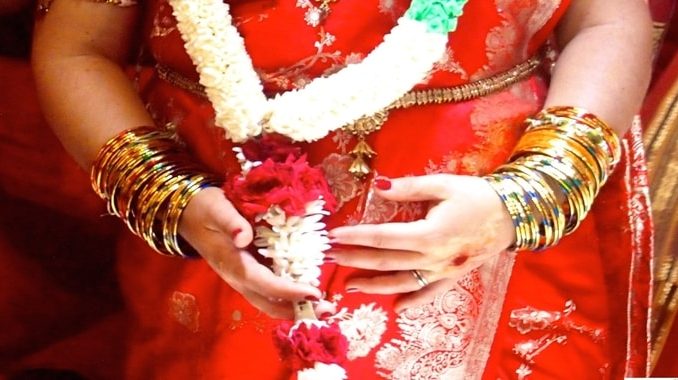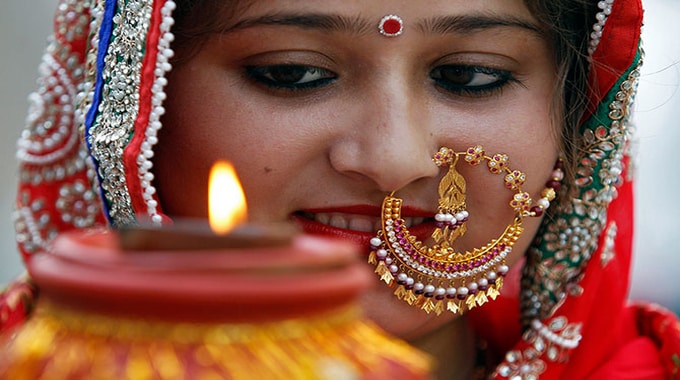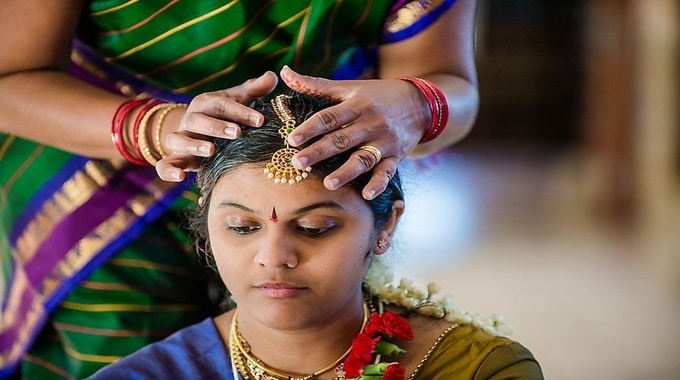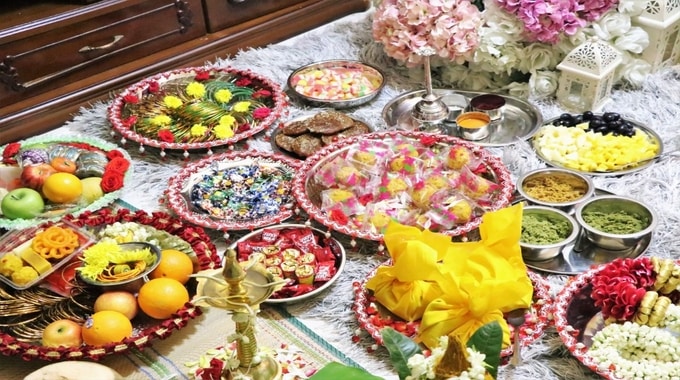
The Pusvan sanskar ceremony is considered the second sacred rite of all the rites specified in Hindu theology. Hinduism particularly values sixteen rites, although thirty-two Sanskrit are listed in the scriptures. Pusvan Samskara is celebrated when the mother is three months pregnant with the child. Giving birth to a child was considered a social responsibility in ancient times. Hence people remembered all the rituals of the sixteen rites, of which Pusvan is one. This article aims to clarify the importance of this rite and the correct procedures for celebrating it.
Right Time to Commemorate the Ceremony
Pusvan is the second rite listed in Hindu scriptures. This sacrament ceremony is held after the completion of the third month of pregnancy. It is important to conduct this function after the completion of the third month of pregnancy because the baby’s brain begins to develop during this period.
Importance of Punsavan Sanskar
In Hinduism, the Pusvan Samskara is celebrated for blessings with a healthy child. It is believed that during the first trimester, the sex of the child cannot be determined. Therefore, Pusvan should be conducted before the development of the child’s penis. This ceremony is conducted for the protection of the child in the mother’s womb. Many people follow this ritual to be blessed with a boy and a healthy child. Through this rite, parents also pray for the mental, physical and emotional development of the child. During this rite, parents pray to God for the development of good qualities in the child and to keep the child away from negative influences.
Punsavan Sanskar: Sacred Rituals to Follow
Aushadhi Avdharan (Medicinal Intake)
Firstly, a special medicine is put in the nose of a pregnant woman during the Punsavan ceremony. Droplets extracted from the Giloy tree are inserted into the nasal, chanting the necessary mantras. The Giloy tree has medicinal and antibacterial properties. During this ritual, drops of Giloy are given as medicine in a bowl, especially to a pregnant woman. The people present in the ceremony chant the mantra:
ॐ अदभ्यः सम्भृतः पृथिव्यै रसाच्च, विश्वकर्मणः संवर्त्तताग्रे। तस्य त्वष्टा विदधद्रूपमेति, तन्मर्त्यस्य देवत्वमाजानमग्रे। “…(-31.17)
While the mantras are being chanted, the pregnant woman should put the medicine in her nostril with her right hand and breathe. Other family members should also place their right hands on the belly of the woman and successfully conclude the Ayushi Awadan ceremony. By organizing this ritual, the child will get good health.
Garbh Pujan or Worshipping the Womb
According to the scriptures, the woman’s womb should be worshiped during this ceremony, because the womb is a medium through which life comes into existence. It is also considered representative of God in many ways.
- The mother and other family members should pray for the child in the womb to receive good behavior and culture.
- A pregnant woman should follow a healthy and comfortable diet and pray for the overall development of the child.
- It is believed that if a pregnant woman chants mantras daily, God will bless her child.
- Keeping this fact in mind, each family member should take flowers and Akshat (rice) in their hands and chant the mantra, wishing for sound health and behavioral development of the child.
“ॐ सुपर्णोसि गुरुत्माँस्त्रिवृते शिरो, गायत्रं चक्षुबृहद्रथन्तरे पक्षौ। स्तोम आत्मा छंदा स्यढाणि यजु षि नाम। साम ते तनूर्वामदेव्यं, यज्ञायज्ञियं पुच्छं धिष्ण्याः शफाः। सुपर्णोसि गरुत्मान दिवं गच्छ स्वः पत। …(-12.4)” - Next, collect all the flowers and intact and give them to the pregnant woman. She would put flowers and Akshat on her stomach and then put them back in the plate.

Also Read:Zodiac Signs Most Attractive Feature
Ashrae Vatsna
During the asylum vats ritual, special prayers are offered to create an environment that will complement the imminent development of the unborn child.
During this ritual, attendees assure that the responsibility with which the child is sent to the mother’s womb will be fulfilled by the parents.
- In this ritual, the first assurance is given by the mother. She assures that she will not only take care of her diet, but will try to bring good cultural ideas to the child’s mind. He will not waste his time even in irrelevant matters.
It is also necessary to assure a pregnant woman that when the child is in her womb, she will distance herself from negative characteristics such as jealousy, anger and spend most of her time praying for the better future of her unborn child.
The second oath of assurance must be taken by the father and other family members. The child’s existence takes a form with the help of the mother’s blood and flesh and after her birth, it is only the mother’s milk that the child eats for months. There is no doubt that the mother will fulfill all her responsibilities regarding the child. Therefore, it is now the duty of fathers and other family members to assure that they will keep the unborn child away from all social defects and help in the development of the child.
During this ritual, the mother places her right hand on her stomach followed by the father and other family members. While doing so, they chant the mantra given below and assure proper development of the unborn child.
“ॐ यत्ते सुशीमे हृदये हितमन्तः प्रजापतौ। मन्येहं मां तद्विद्वांसं, माहं पौत्रमघनिन्याम। …(-आश्र्व.गृ.सू.1.13 )”

Also Read:Most Irresponsible Zodiac Signs – Never Rely on them
Special Offering
A special offering is also held for better implementation of this sacrament ceremony. According to Indian traditions, the yajna is very important. To make the yajna sacred, offerings are made. Each aspect of human life is compared to the offerings made in the Yajna. For this special prasad, rice pudding or kheer is made at home, which is used as prasad.
During this time family members make offerings while chanting Gayatri Mantra. Later, while making the five offerings, the following mantra is chanted:
“ॐ धातादधातु दाशुषे प्राचीं जीवतुमक्षिताम। वयं देवस्य धीमहि सुमतिं वाजिनीवतः स्वाहा। इदं धात्रे इदं न मम। “ …(-आश्र्व.गृ.सू.1.14 )”
Charu Pradan
During the charu pradan ceremony, kheer made for prasad is offered to the pregnant woman as the food products offered in the yajna are considered to be enriched with divine powers.
After the Punsavan ceremony is over, the pregnant woman should be given the remaining Prasad for the Yajna. Maintaining a satvic diet during pregnancy is considered important.
It is also said that a pregnant woman should first dine after eating food to God. During charu pradan ceremony kheer made for special prasad is offered as prasad to the first pregnant woman. A pregnant woman should put some pudding of Kheer on her head and seek God’s blessings. He should also wish for the presence of divine energies in Kheer / Prasad. While applying Kheer on the head, one should chant the following mantra.

Also Read:Alcohol Addiction – How it Affects Your Astrology Horoscope
“ॐ पयः पृथिव्यां पय ओषधीषु, पयो दिव्यन्तरिक्षे पयोधाः। पयस्वतीः प्रदिशः सन्तु मह्यम। “(-यजु.18.36.)”
Aashivarchan
This ritual is specially organized for the conclusion of the Pusvan Rites. After successful completion of all the above mentioned rituals, priests and elderly members of the family should put flowers and fruits on the pregnant woman’s lap while chanting
The pregnant woman should also respectfully accept the fruits and flowers given by her and take blessings from the priest and elderly members of her family along with her husband.
At the end of the ceremony, flowers are showered on the pregnant woman. After the prasadam distribution, the Pusvan sanskar ceremony ends.
Time Period
- According to the scriptures, Pusvan ceremony can be held from the second month of pregnancy.
- If the ceremony is held during Pushya Nakshatra, best results can be seen.
- Some people hold Pusvan celebrations for twelve days for better and positive results.
- This will be beneficial if you organize the ceremony during the same or joint tithis or dates (2-4-6-8).
